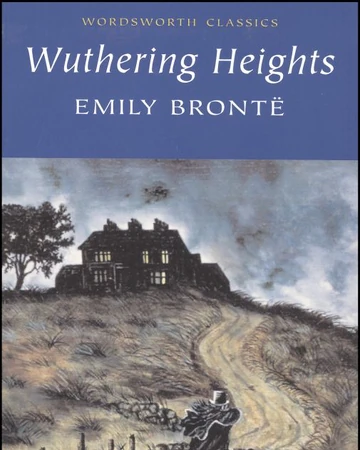Warning: This post contains vague spoilers for Wuthering Heights
Hello everyone! I hope you have been getting enough sleep and dreaming in long sequences. This week we are going to analyze a dream scene from Wuthering Heights by Emily Bronte. Since this is the first time I’ve analyzed dream from a piece of media, I’ll explain how this will work. I will write out the scene below. It will be a direct excerpt from Wuthering Heights with minor cuts for brevity (in coming weeks, it may be clips from movies or shows or excerpts from other books). Then, I will analyze the scene like I have been doing in previous weeks, using Jungian and literary analysis tools. You know the drill by now.
Onto the dream!

Mr. Lockwood’s Dream about Cathy
Warning: violent imagery
“I must stop it, nevertheless!” I muttered, knocking my knuckles through the glass, and stretching an arm out to seize the importunate branch: instead of which, my fingers closed on the fingers of a little, ice-cold hand!
The intense horror of nightmare came over me; I tried to draw back my arm, but, the hand clung to it, and a most melancholy voice sobbed,
“Let me in – let me in!”
“Who are you?” I asked, struggling, meanwhile, to disengage myself.
“Catherine Linton,” it replied, shiveringly […] “I’m come home, I’d lost my way on the moor.”
As it spoke, I discerned, obscurely, a child’s face looking through the window – Terror made me cruel; and, finding it useless to attempt shaking the creature off, I pulled its wrist on to the broken pane, and rubbed it to and fro till the blood ran down and soaked the bed-clothes: still it wailed, “Let me in!” and maintained its tenacious gripe, almost maddening me with fear.
The fingers relaxed, I snatched mine through the hole, hurriedly piled the books up in a pyramid against it, and stopped my ears to exclude the lamentable prayer.
The Analysis
Although this is Mr. Lockwood’s dream, Mr. Lockwood is the least important character in both the dream and Wuthering Heights. He merely acts as a narrator in the story. In the dream, he is an unsuspecting vessel for the foreshadowing of what is to come. Catherine, the main female protagonist of the story, is the main event.
In the dream, Cathy has come back to Thrushcross Grange, her family’s home, as a ghost. She is locked out of her home and mournfully demanding that a stranger, Mr. Lockwood let her in. Cathy’s displacement from her position of nobility and her death leads readers to believe that something awful has happened to her. And something awful will happen to her, later in the book!
I am going to take an avant-garde route of interpretation and expand Jung’s Shadow archetype, which is usually contained within a single person, to a relationship between two people. This dream shows the wreckage and underbelly of what will later in the book be Cathy and Heathcliff’s tumultuous relationship. In this sense, the dream harbors the Shadow of not just Cathy (although it does depict Cathy’s Shadow as well), but also of Cathy and Heathcliff as a single destructive unit. Dream-Cathy is the Shadow of all of real Cathy and Healthcliff’s mistakes. Dream-Cathy represents the consequences of their foolish choices.
Those of you who have read more than one of my posts have probably noticed that I talk about Jung’s Shadow archetype often. This is because the Shadow and the unconscious are intimately intertwined. Often, the things that are lurking in the unconscious are the parts of ourselves that we are ashamed of, or that we don’t want to face. When we dream, those hidden impulses come to the surface. In the case of Wuthering Heights, it is not Mr. Lockwood’s unconscious we are inspecting but the unconscious of the story itself. Mr. Lockwood is simply the messenger. The story breathes through him.
Mr. Lockwood’s dream about Cathy, which is disturbing and lyrical, is a portent for the future of the story and encapsulates the Shadow not only of Cathy but also of the relationship between Cathy and Heathcliff.
Stay loose and dream lucid!

I was trying to post on a different site but could not get in. I simply wanted to point out that recently I was teaching English to a Peruvian woman and we read Lockwood’s dream of the preacher who preached for hours and hours to the point of utter boredom and the rebellion it caused. We agreed that this is humor at its best. Emily Brontë did have a great sense of humor as shown here.